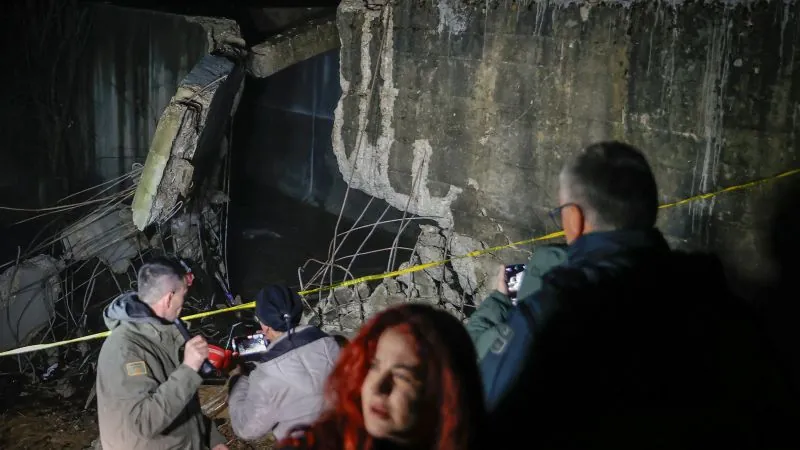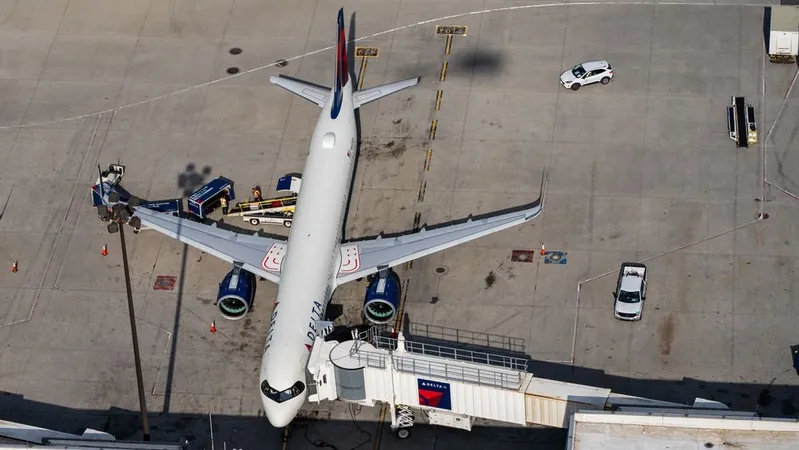
Rising Tensions: Kosovo Sends Shockwaves After Canal Blast Targeting Power Supplies
2024-11-30
Author: Wai
Introduction
In a fiercely escalating situation, Kosovo has ramped up security measures across critical infrastructure following a devastating explosion that struck a canal vital to supplying water to its two principal power plants. Officials in Pristina have condemned the incident, categorizing it as a 'terrorist act' allegedly orchestrated by neighboring Serbia.
Accusations and Rejections
Serbia's Foreign Minister, Marko Djuric, swiftly rebuffed these accusations, labeling them as 'baseless' claims. He insinuated that the Kosovo government, under Prime Minister Albin Kurti, might have had a hand in instigating the incident, though he did not furnish any supporting evidence for his assertions.
Historical Context
The explosion, which shook the town of Zubin Potok on Friday evening, has heightened tensions already simmering between the two Balkan nations. Kosovo declared independence from Serbia back in 2008 following a bloody conflict that saw Kosovo Albanians launch a guerrilla insurgency against Serbian rule. Since then, Serbia has refused to acknowledge Kosovo's sovereignty, resulting in enduring ethnic and political strife, particularly within the northern regions where a Serbian minority still rejects Pristina's authority.
Emergency Measures
In response to the blast, which currently remains unexplained, Kosovo's Security Council convened for emergency discussions and moved to activate its armed forces to guard against further potential attacks. The heightened state of alert follows recent violent incidents, including hand grenade assaults on police stations and local government buildings in predominantly Serb areas of Kosovo.
Protective Steps
The Security Council announced an array of additional protective measures on Saturday, targeting significant infrastructure such as bridges, transformer stations, and vital water sources to ensure the safety of essential services.
Political Responses
Prime Minister Albin Kurti has pointed fingers at organized criminal factions in Serbia for the attack. Arben Gjukaj, former CEO of Kosovo's electricity utility company KEK, expressed grave concerns, asserting that the bombing was a meticulously planned operation aimed at disrupting power production by cutting off water flow.
On-site Investigation
On-site investigations revealed that silt was pouring through a breach in the canal's concrete wall, prompting emergency workers to install substantial tubes to redirect the flow. While power supplies appeared to remain intact following the explosion, some communities experienced interruptions in their drinking water supply.
Averting Crisis
In a bid to avert an energy crisis, Kosovo's Energy Minister Artane Rizvanolli announced that the country is collaborating with Albania's power company to secure additional electricity. Furthermore, truckloads of water are being dispatched to the affected regions, as the government scrambles to stabilize the situation.
Conclusion
The volatile circumstances illustrate the fragile relationship between Kosovo and Serbia, with fears that such provocations could spiral further into conflict, threatening peace in the region once again.


 Brasil (PT)
Brasil (PT)
 Canada (EN)
Canada (EN)
 Chile (ES)
Chile (ES)
 España (ES)
España (ES)
 France (FR)
France (FR)
 Hong Kong (EN)
Hong Kong (EN)
 Italia (IT)
Italia (IT)
 日本 (JA)
日本 (JA)
 Magyarország (HU)
Magyarország (HU)
 Norge (NO)
Norge (NO)
 Polska (PL)
Polska (PL)
 Schweiz (DE)
Schweiz (DE)
 Singapore (EN)
Singapore (EN)
 Sverige (SV)
Sverige (SV)
 Suomi (FI)
Suomi (FI)
 Türkiye (TR)
Türkiye (TR)